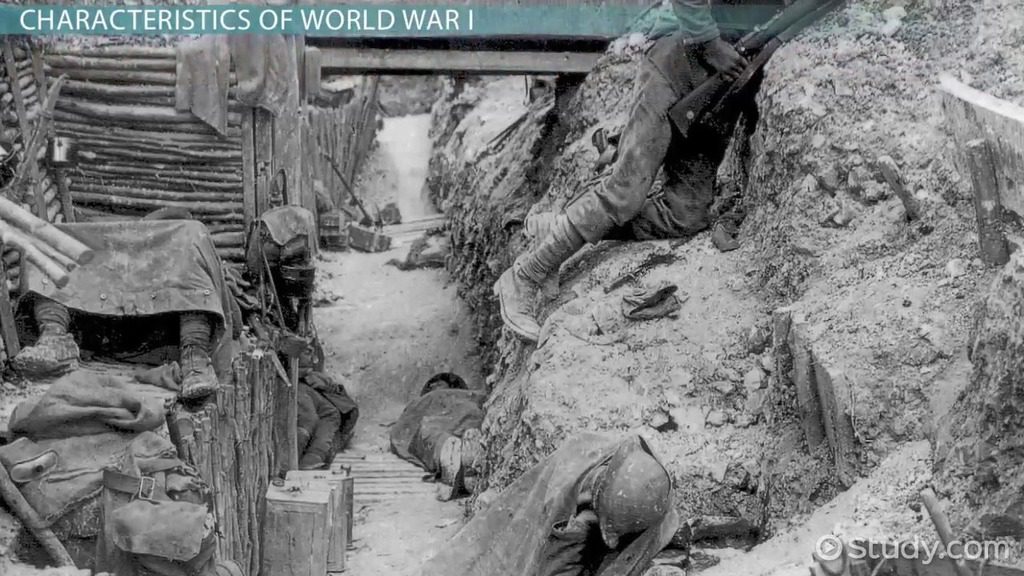The outbreak of World War I, also known as the Great War, lasted from 1914 to 1918 and had significant consequences that shaped the 20th century. This article explores the causes of the war, including nationalism, imperialism, and the alliance system. The assassination of Archduke Franz Ferdinand and the failure of diplomacy also played a role. The war resulted in unprecedented destruction and loss of life, as well as the redrawing of maps and the establishment of the League of Nations. The harsh conditions imposed after the war contributed to the rise of fascism and the outbreak of World War II. The balance of global power also shifted, with Europe’s dominance declining and the United States emerging as a major power. This article emphasizes the importance of diplomacy and global cooperation in preventing future catastrophic conflicts.
The Outbreak of World War I: Causes and Consequences
Introduction
The outbreak of World War I, also known as the Great War, was one of the most significant events in human history. Lasting from 1914 to 1918, the war involved numerous countries and had far-reaching consequences that shaped not only the 20th century but also the course of global politics, alliances, and conflicts. This article will discuss the causes that led to the outbreak of World War I and explore the enduring consequences it had on the world.
Causes of World War I
1. Nationalism and Imperialism
Nationalism and imperialism were primary causes of World War I. In the late 19th and early 20th centuries, many European powers were vying for economic and territorial dominance, leading to intense competition. This drive for dominance fueled aggressive foreign policies and territorial expansion, exacerbating the tensions between nations.
2. Alliance System
The alliance system, consisting of complex webs of treaties between various European powers, played a significant role in escalating the situation. The two main alliances, the Triple Entente (consisting of France, Russia, and Britain) and the Central Powers (led by Germany), increased the stakes of any conflict and made the outbreak of war more likely.
3. Assassination of Archduke Franz Ferdinand
The immediate trigger for the outbreak of war was the assassination of Archduke Franz Ferdinand, heir to the Austro-Hungarian Empire. On June 28, 1914, Ferdinand and his wife were assassinated in Sarajevo, Bosnia, by a Serbian nationalist. This event set off a chain reaction of diplomatic tensions and declarations of war between countries.
4. Failure of Diplomacy
The failure of diplomacy is another cause of World War I. Despite efforts to negotiate and maintain peace, diplomatic channels proved inadequate in resolving the complex web of alliances, treaties, and national interests. The inability to find diplomatic solutions forced countries to resort to military actions, plunging the world into war.
Consequences of World War I
1. Casualties and Destruction
World War I resulted in an unprecedented level of destruction and loss of life. Approximately 20 million people were killed during the war, with millions more wounded or displaced. The introduction of modern weaponry, such as machine guns, artillery, and poison gas, intensified the devastation on the battlefields.
2. Redrawing of Maps
The war led to significant territorial changes and the redrawing of maps. The collapse of empires, such as the Austro-Hungarian, Ottoman, and Russian empires, resulted in the creation of new nations and the reconfiguration of borders across Europe and the Middle East. These new borders would shape subsequent conflicts, such as the Balkan Wars and the Arab-Israeli conflict.
3. League of Nations
The aftermath of World War I saw the establishment of the League of Nations, an international organization created to promote peace and prevent future wars. Although the League of Nations ultimately failed to prevent World War II, it laid the groundwork for the establishment of the United Nations, which continues to work towards global peace and cooperation.
4. Rise of Fascism and World War II
The harsh conditions imposed on Germany by the Treaty of Versailles, which ended World War I, contributed to economic instability and political resentment within the country. These conditions laid the foundations for the rise of Adolf Hitler and the Nazi party, ultimately leading to the outbreak of World War II.
5. Shift in Global Power Dynamics
The balance of power in the world shifted dramatically after World War I. European dominance began to decline, and the United States emerged as a major global power. The war also weakened the economies of many European countries, leaving them vulnerable to political instability in the years that followed.
Conclusion
The outbreak of World War I was the culmination of tensions resulting from nationalism, imperialism, and the complex network of alliances in Europe. The war had devastating consequences, resulting in unprecedented levels of casualties and destruction. It reshaped the geopolitical landscape, redrew maps, and laid the foundation for future conflicts. As we reflect on the causes and consequences of World War I, it serves as a reminder of the importance of diplomacy, peacekeeping organizations, and the pursuit of global cooperation to prevent further catastrophic conflicts.
